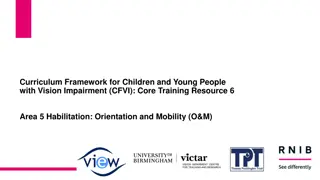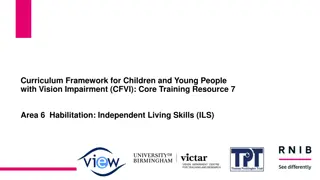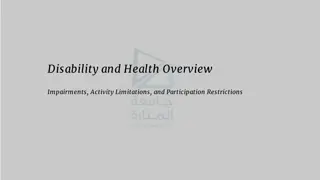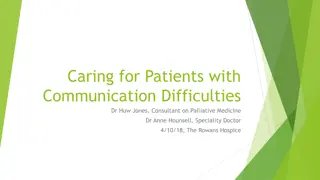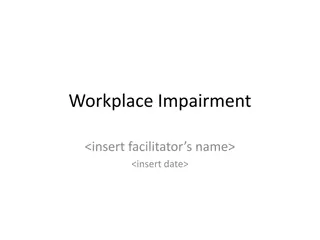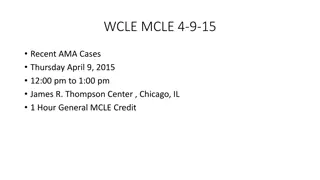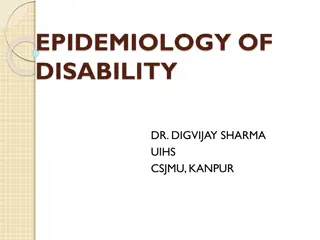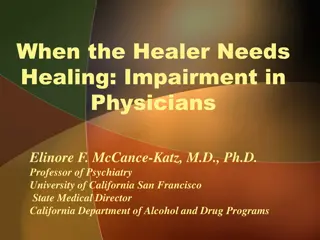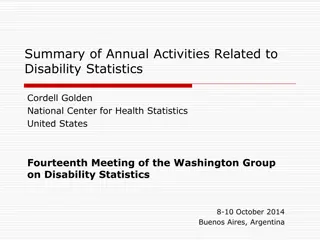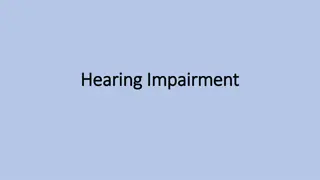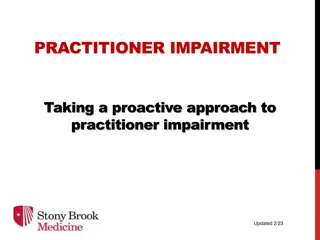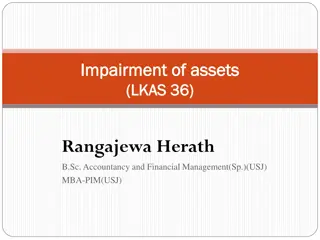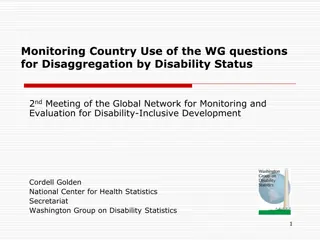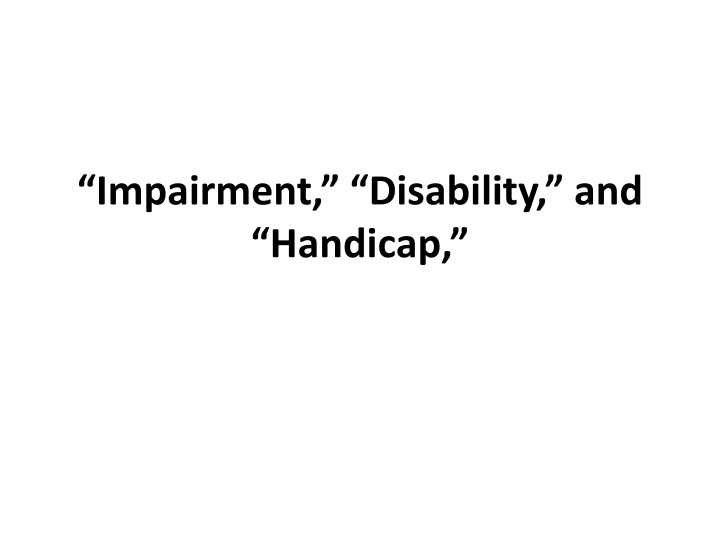
Impairment, Disability, and Handicap
Explore the differences between impairment, disability, and handicap, their impact on individuals, and how society plays a role in creating handicaps. Learn about impairments as organ-level abnormalities, disabilities as restrictions in performing normal activities, and handicaps as social disadvantages. Discover the nuances and complexities of these terms to enhance your awareness and understanding.
Download Presentation

Please find below an Image/Link to download the presentation.
The content on the website is provided AS IS for your information and personal use only. It may not be sold, licensed, or shared on other websites without obtaining consent from the author. If you encounter any issues during the download, it is possible that the publisher has removed the file from their server.
You are allowed to download the files provided on this website for personal or commercial use, subject to the condition that they are used lawfully. All files are the property of their respective owners.
The content on the website is provided AS IS for your information and personal use only. It may not be sold, licensed, or shared on other websites without obtaining consent from the author.
E N D
Presentation Transcript
Impairment, Disability, and Handicap,
The word impairment, disability, and handicap, are very common words, having different meanings. Impairment, disability and handicap are all related to conditions that make it hard or impossible for an individual to function in a normal capacity and the effect of those conditions. each
Impairment Simply we can say that Impairment is the abnormality itself, it is the weakness or damage of the organ. Impairment is a loss or abnormality of psychological, physiological, or anatomical structure or function. 'Impairment' is concerned abnormalities of body appearance or of functioning, resulting from any cause. with the and structure and organ system
Impairments are disturbances at the level of the organ which include defects in or loss of a limb, organ or other body structure, as well as defects in or loss of a mental function. Examples of impairments include blindness, deafness, paralysis of a limb, amputation of a limb; mental retardation etc.
Disability Disability: any restriction or lack (resulting from an impairment) of the ability to perform an activity in the manner or within the range considered normal for a human being. Disability' is the functional consequence of impairment.
Disability is the term used to define a restriction in the ability to perform a normal activity of daily living which someone of the same age is able to perform. Disability means the lack of ability to perform an activity in a manner that is considered to be normal.
Handicap Handicap is a social construct / concept. 'Handicap' relates experienced in society by the individual, as a result of his/her disability. It is basically society environment what makes people handicapped. A handicap is a "disadvantage for a given individual, resulting from an impairment or disability, that limits or prevents the fulfillment of a role that is normal, (depending on age, sex and social and cultural factors) for that individual". to the disadvantages and the physical
Examples restricted or confined / limited to home; being unable to use public transport; being socially isolated. It is evident from the definitions above that a handicap is the result both of an impairment and of environmental conditions. If environmental barriers are taken away, the person will still be necessarily handicapped. of handicaps include being impaired, but not
Simply we can say that, impairment refers to a problem with a structure or organ of the body; disability is a functional limitation with regard to a particular activity; and handicap refers to a disadvantage in filling a role in life.
Conclusion All disabled people are impaired, and all handicapped people are disabled, but a person can be impaired and not necessarily be disabled, and a person can be disabled without being handicapped.

